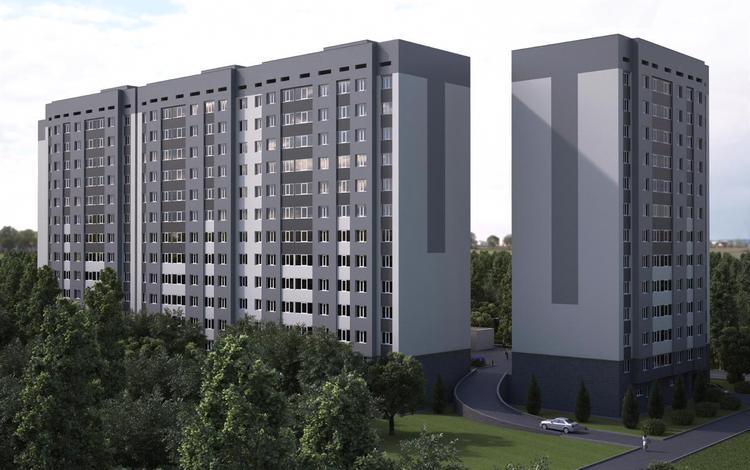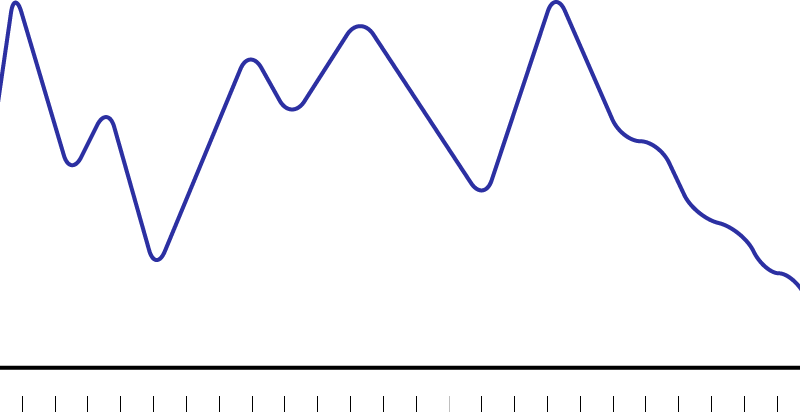Turkey began a new military operation against the Kurdistan working party in the north of Iraq. The Turkish Air Force has already struck objects in the areas of Metin, Zap and Avasin-Basyan. Gazeta.Ru understood why Ankara went to escalation right now, what goals the Turks in the region pursue, and how the world community will respond to a new round of military operations in the world.
Turkey resumed a military campaign against the Kurds. Why now?
Experts spoke about the main goals of the Turkish special operation against the Kurds in Iraq

Turkey began a new military operation against the Kurdistan working party in the north of Iraq. The Turkish Air Force has already struck objects in the areas of Metin, Zap and Avasin-Basyan. Gazeta.Ru understood why Ankara went to escalation right now, what goals the Turks in the region pursue, and how the world community will respond to a new round of military operations in the world.
Erdogan is defending
The operation, under the code name Claw-zoom began on the evening of April 17 with the shelling of the positions of the Kurdistan Workers' Party (RPK) in Northern Iraq.
Shelters, bunkers, tunnels, caves and warehouses of Kurdish forces fell under the blow. According to official figures, the event is involved in the special forces and air forces of Turkey.
Thus, Ankara resumed a campaign of RPK, which has been recognized by a terrorist organization in many countries of the world, which has been drawn since 2015.
“In order to neutralize the RPK and other terrorist elements and ensure the safety of our borders in accordance with our right to self -defense arising from Art. 51 of the United Nations Charter, against the terrorist goals in the north of Iraq, the Operation Claw-Zamok was launched, the Turkish Ministry of Defense said in a statement.
It is noteworthy that Ankara used such formulations earlier, when the Turkish armed forces began operations against the Kurds living in the northeast of Syria. In 2015 and 2019, it also was about the right to self -defense.
The acute phase of the conflict between Turkey and the Kurdistan Workers Party has been stretching since 1984, when the party began the rebel struggle against the Turkish authorities.
The acute phase of the conflict between Turkey and the Kurdistan Workers Party has been stretching since 1984, when the party began the rebel struggle against the Turkish authorities.
In 2013, the RPC leader Abdullah Odzalan, who by that time was in prison for about 14 years, a halt of supporters of conducting a congress to peacefully settle the Kurdish problem. Then the military units of the RPC were brought to the neighboring Iraqi Kurdistan with the consent of the local government. Members of the RPK strengthened in the Candil mountains along the borders with Turkey and Iran.
In 2015, the conflict entered the new phase. On July 25, the Turkish Air Force inflicted several aviation strikes on the positions of militants of the Islamic State (IG, the organization is banned in Russia) on the Syrian-Turkish border.In addition to attacking the positions of the ISIS, Turkish aircraft also attacked the positions of the Kurds, who also fought against the Islamic State. The Turkish leadership said that the attacks on the Kurds were aimed at protecting Turkey's national security. The PKK leadership, in turn, decided to break the ceasefire agreement.
Since then, Turkey has been consistently conducting operations against the PKK, which have included operations in Syria and northern Iraq.
The Ministry of Defense motivated the start of the special operation with reports of an allegedly impending attack by the Kurdistan Workers' Party on Turkey. Similar information circulated in the local media. Ankara intensified military strikes against PKK forces back in December, when one of the militia commanders was killed. In early March, the Turkish Air Force also launched a series of strikes on Kurdish positions in Iraq.
Two days before the outbreak of hostilities, Turkey was visited by the leader of Iraqi Kurdistan, Masrour Barzani, who also heads the Kurdistan Democratic Party (KDP) loyal to Ankara. During his visit, the politician met with Turkish leader Recep Tayyip Erdogan. Local observers regarded this coordination of the last steps before the start of the special operation. At the same time, a wave of arrests swept across the country on charges of links to Kurdish rebels. Members of the pro-Kurdish and opposition Peoples' Democratic Party (HDP) were detained.

An employee of the Institute of Oriental Studies of the Russian Academy of Sciences, Amur Gadzhiev, recalled in an interview with Gazeta.Ru that the HDP won 56 seats in the last parliamentary elections, but the success of the “leftist” party alerted Ankara.
“In relation to this pro-Kurdish party, a targeted policy is being pursued to reduce its popularity on the part of the authorities. This is evidenced by the arrest of its leaders. Some are still under investigation. The main accusation is close relations with the PKK and complicity in terrorism,” Hajiyev explained.
Operation goals
Turkey's campaign against the PKK has been going on since 1984, said Viktor Nadein-Raevsky, senior researcher at IMEMO RAS. According to him, Ankara reached an agreement with Saddam Hussein on strikes by the PKK and on its detachments in Iraq, with a possible invasion. However, the expert states that it is still not possible to completely “smoke out” the PKK from Iraq.
“They are based in areas that are difficult to get to. The Kurdish autonomy in Iraq seems to maintain neutrality with the PKK, but demands that they remove their bases. The PKK practically does not respond to these demands. Their infrastructure is still there. On the territory of Turkey, their bases are more vulnerable,” Nadein-Raevsky said.
Amur Hajiyev sees no difference between the targets set during past Turkish special operations against the Kurds and the current one.
“The challenge is to completely eliminate the support for the Turkish Kurds from the PKK, who have dug in Iraq.In addition to attacking the positions of the ISIS, Turkish aircraft also attacked the positions of the Kurds, who also fought against the Islamic State. The Turkish leadership said that the attacks on the Kurds were aimed at protecting Turkey's national security. The PKK leadership, in turn, decided to break the ceasefire agreement.
Since then, Turkey has been consistently conducting operations against the PKK, which have included operations in Syria and northern Iraq.
The Ministry of Defense motivated the start of the special operation with reports of an allegedly impending attack by the Kurdistan Workers' Party on Turkey. Similar information circulated in the local media. Ankara intensified military strikes against PKK forces back in December, when one of the militia commanders was killed. In early March, the Turkish Air Force also launched a series of strikes on Kurdish positions in Iraq.
Two days before the outbreak of hostilities, Turkey was visited by the leader of Iraqi Kurdistan, Masrour Barzani, who also heads the Kurdistan Democratic Party (KDP) loyal to Ankara. During his visit, the politician met with Turkish leader Recep Tayyip Erdogan. Local observers regarded this coordination of the last steps before the start of the special operation. At the same time, a wave of arrests swept across the country on charges of links to Kurdish rebels. Members of the pro-Kurdish and opposition Peoples' Democratic Party (HDP) were detained.
An employee of the Institute of Oriental Studies of the Russian Academy of Sciences, Amur Gadzhiev, recalled in an interview with Gazeta.Ru that the HDP won 56 seats in the last parliamentary elections, but the success of the “leftist” party alerted Ankara.
“In relation to this pro-Kurdish party, a targeted policy is being pursued to reduce its popularity on the part of the authorities. This is evidenced by the arrest of its leaders. Some are still under investigation. The main accusation is close relations with the PKK and complicity in terrorism,” Hajiyev explained.
Operation goals

Turkey's campaign against the PKK has been going on since 1984, said Viktor Nadein-Raevsky, senior researcher at IMEMO RAS. According to him, Ankara reached an agreement with Saddam Hussein on strikes by the PKK and on its detachments in Iraq, with a possible invasion. However, the expert states that it is still not possible to completely “smoke out” the PKK from Iraq.
“They are based in areas that are difficult to get to. The Kurdish autonomy in Iraq seems to maintain neutrality with the PKK, but demands that they remove their bases. The PKK practically does not respond to these demands. Their infrastructure is still there. On the territory of Turkey, their bases are more vulnerable,” Nadein-Raevsky said.
Amur Hajiyev sees no difference between the targets set during past Turkish special operations against the Kurds and the current one.
“The challenge is to completely eliminate the support for the Turkish Kurds from the PKK, who have dug in Iraq.Especially since the groups associated with the PKK are in opposition to the authorities of Iraqi Kurdistan. So Ankara’s actions are not taking place without the tacit consent of the representatives and leadership of Northern Iraq,” the researcher said.
“It is known that Turkey is extremely unhappy with the fact that the United States and other Western countries continue to actively support the pro-Kurdish YPG in northern Syria and near the border with Iraq. And Ankara has repeatedly stated this. But despite this, the US and allies continued to provide support to groups closely associated with the PKK,” Gadzhiev added.
According to him, Turkey is serious about solving the Kurdish problem by force.
Why now?
Victor Nadein-Raevsky is sure: Erdogan initiated a special operation now, because the activities of Kurdish detachments have recently intensified.
“There was a short period until 2015 when the parties maintained a truce. But then the Turks themselves violated the agreement, and the war resumed. Kurds demand autonomy. There are supporters of the creation of a Kurdish state, but there are fewer of them,” the researcher said.


